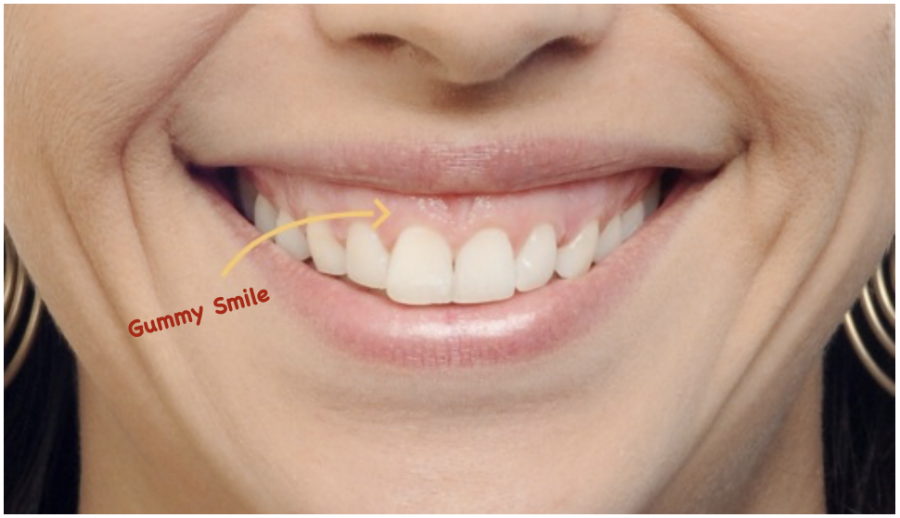Here in the world of dental hygiene, the health of our gums is front and center. As patients seeking the best care for our receding gums, it is essential to explore the potential of natural remedies like neem. In this insightful blog, by Dr. Chirag Chamria of Royal Dental Clinics, we dive into the captivating world of neem and its impact on gum health. Imagine harnessing the power of an ancient herb, revered for centuries in Ayurvedic medicine, to combat gum disease and promote gum rejuvenation. Neem, with its remarkable antibacterial, antifungal, and anti-inflammatory properties, emerges as a promising natural remedy for receding gums. Through the expertise of Dr. Chirag Chamria, a dental maestro passionate about patient well-being, we unravel the secrets of Neem’s potential as a game-changer in oral care.
Understanding Receding Gums
Receding gums, also known as gingival recession, is a dental condition where the gum tissue surrounding the teeth starts to wear away or recede, exposing the tooth roots. This can lead to various dental problems and affect both the aesthetics and the health of your smile. Several factors can contribute to the development of receding gums:
Poor Oral Hygiene: Inadequate brushing and flossing can allow plaque to accumulate along the gumline, leading to gum disease. Over time, gum disease can cause the gums to recede.
Aggressive Brushing: Brushing your teeth too hard or using a toothbrush with hard bristles can cause the gum tissue to wear away gradually.

Gum Disease: The most common cause of receding gums is gum disease, also known as periodontal disease. This bacterial infection affects the gums and supporting structures of the teeth, leading to inflammation and eventual gum recession if left untreated.
Hormonal Changes: Hormonal fluctuations during puberty, pregnancy, and menopause can make the gums more susceptible to gum disease and cause them to recede.
Tobacco Use: Smoking or chewing tobacco can damage the gum tissue and contribute to gum recession.
Genetic Predisposition: Some individuals may have a genetic predisposition to develop receding gums, even with proper oral hygiene practices.
It’s essential to recognize the signs and symptoms of receding gums, which may include:
- Longer-looking teeth
- Tooth sensitivity to hot or cold temperatures
- Visible tooth roots
- Spaces or gaps between teeth
- Changes in the appearance of your smile
If you suspect that you have receding gums, it’s crucial to seek professional dental care. Dentists, such as Dr. Chirag Chamria at Royal Dental Clinics, can evaluate your oral health, determine the underlying cause of your gum recession, and develop a suitable treatment plan.
Power of Neem in Receding Gums
Neem (Azadirachta Indica) is a versatile plant that has been used for centuries in Ayurvedic medicine for its numerous health benefits. When it comes to oral health, neem has gained recognition for its antibacterial, antifungal, and anti-inflammatory properties. Let’s explore the power of neem in promoting gum health and its potential to combat receding gums.
Antibacterial Properties: Neem has powerful antimicrobial properties. Neem chemicals as nimbi din and nimbi prevent gum disease-causing germs. Streptococcus mutans and Porphyromonas gingivalis induce inflammation, plaque, and gum recession. Neem-based toothpaste and mouthwash may decrease oral microorganisms and enhance gum health.
Antifungal Properties: Neem is antibacterial and antifungal. Candida-caused oral thrush may cause gum inflammation and receding gums. Neem’s antifungal properties reduce gum disease risk.
Anti-Inflammatory Effects: Anti-inflammatory neem may help receding gums. Neem’s anti-inflammatory properties may help gums repair and prevent recession. Neem reduces redness, swelling, and irritation, helping gums heal.
Natural Remedy for Receding Gums Disease
Gum disease, specifically periodontitis, is a leading cause of receding gums. Neem can serve as a natural remedy to prevent and manage gum disease. Research suggests that neem-based products can inhibit the growth of bacteria associated with gum disease and reduce the severity of inflammation. Regular use of neem-based oral care products can support gum health and minimize the risk of gum recession.
Plaque Control: Gum disease is caused by plaque. Neem reduces plaque on teeth, preventing gum irritation and disease development. Neem-based oral care products keep teeth clean and healthy.

Gum Healing: Neem heals and regrows gums. Collagen synthesis strengthens gum tissue and supports its health. Neem helps heal injured gums and prevent gum recession.
Safe and Natural: Natural neem has little adverse effects. It is chemical-free. If you have dental issues or allergies, visit a dentist like Dr. Chirag Chamria of Royal Dental Clinics before using neem-based products.
Neem’s Role in Oral Hygiene Routine | Receding Gums
Use neem toothpaste: Brush your teeth twice a day with neem toothpaste containing pure neem extracts or neem oil.
Neem mouthwash: Rinse your mouth with a neem-based mouthwash after brushing to further benefit from its antibacterial and anti-inflammatory properties.
Neem oil for oil pulling: Oil pulling with neem oil can help reduce bacteria and plaque in the mouth. Swish a tablespoon of neem oil in your mouth for about 10-15 minutes before spitting it out.
While it can be a valuable natural remedy for gum disease, it is important to note that it should be used as a complement to a comprehensive oral care routine and professional dental care. Regular dental check-ups, professional cleanings, and personalized treatment plans are essential for effectively managing gum disease.
Consulting Your Dentist
Consulting with a dentist is crucial for the proper diagnosis and treatment of gum disease. While natural remedies like it can be beneficial, it’s important to seek professional dental advice to ensure you receive appropriate care tailored to your specific condition. Dentists, such as Dr. Chirag Chamria of Royal Dental Clinics, have the knowledge and expertise to assess your oral health, identify the stage and severity of gum disease, and recommend suitable treatment options.
During a dental consultation, your dentist will:
Evaluate your oral health: To evaluate gum disease, the dentist will check your teeth, gums, and oral cavity. X-rays, gum recession, and periodontal pocket depth may be measured.
Determine the appropriate treatment plan: Your dentist will create a customized treatment plan after the evaluation. Depending on gum disease severity, this may entail expert cleanings, scaling and root planning, antibiotics, or other treatments.
Provide guidance and education: Dentists may advise on correct brushing, flossing, and oral care products. They may also help you include natural medicines like it into your regimen.
Monitor your progress: Regular dental appointments let your dentist track gum disease therapy. They may evaluate the treatment plan’s efficacy, make modifications, and give continuing oral health advice.
Conclusion
In conclusion, neem can be a valuable natural remedy for receding gums due to its antibacterial, anti-inflammatory, and overall oral health-promoting properties. While neem-based products can be beneficial, it’s crucial to maintain a comprehensive oral hygiene routine and seek professional dental advice from experts like Dr. Chirag Chamria at Royal Dental Clinics. By combining the power of neem with regular dental care, you can take proactive steps toward improving gum health and preventing further gum recession. Remember, your oral health is a crucial aspect of your overall well-being, so prioritize it for a confident smile and a healthier life.





